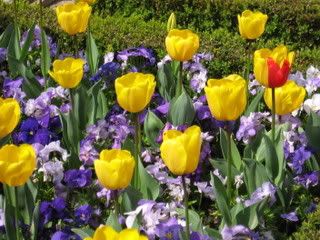
We got to Madrid on a Rainy Spring day, and since we didn't want to trek the whole city in the rain, we took a Big Red Bus tour. I guess that's a little touristy, but we only had one day there and wanted to see as much as possible. The tour is caled the "Madrid Vision":
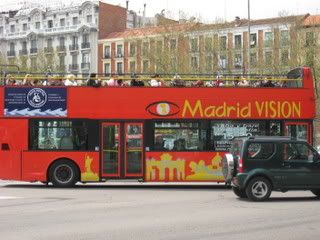
We got to see some beautiful old architecture. This is the Agriculture building:
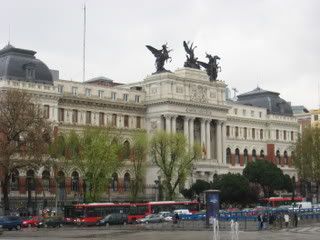
This beautiful building is now a post office:
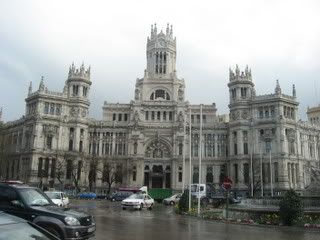
There were also a bunch of international chains there, which I was really happy to see. I hadn't had KFC in months.
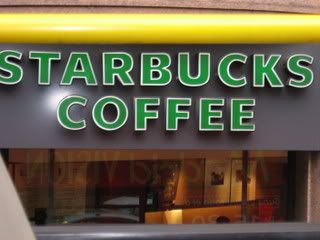
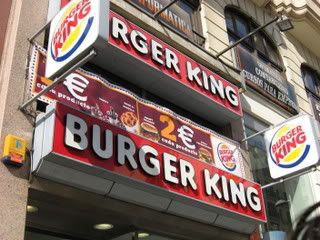
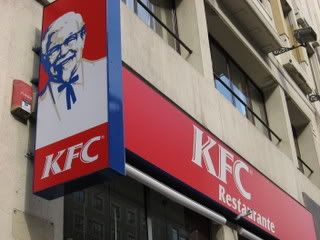
This is the Royal Palace, the Palacio Real. (Formally called the "Palacio de Oriente.") The Royal family doesn't actually live here, but they use it to put up visiting dignitaries and house state events and such. Oh, by the way, Spain is a constitutional monarchy. Admittedly, I didn't know that. In my defense, they do also have a legislative body (the Cortez) and a prime minister, like I thought.

The "Teatro Real" Opera house:
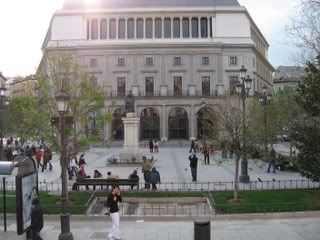
The Metropolis building, which sits on the famous Gran Via - their equivalent to NY's Broadway:
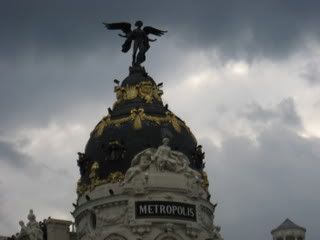
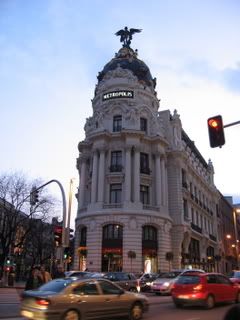
And a pretty post-rain rainbow:
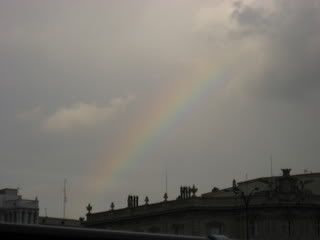
The bus also takes you into the newer part of the city to see some nifty modern architecture:
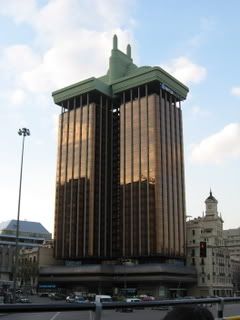
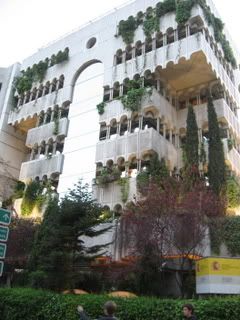
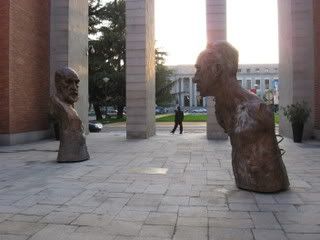
One of the most famous parts of Madrid is the Modern Art Museum, the Centro de Arte Reina Sofía.
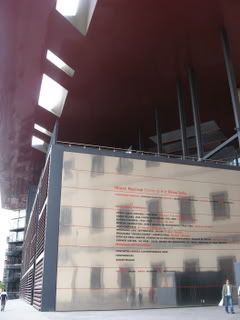
There are a lot of paintings from Picasso and Dali there, including the very famous Guernica:
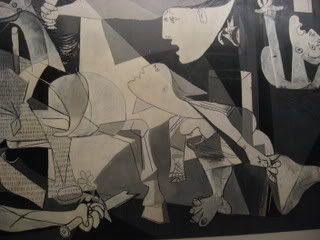
And this really cool thing you can walk through!

I haven't talked very much about the history here, so if you're interested in the architecture check out this page for a better overview: http://www.whatmadrid.com/architecture.html. We were only there for a day ourselves and I hope to go back one day to see more of the city and some Flamenco dancers!
We then headed to the train station to take an overnight train to Barcelona. The Atocha Train Station is built around the original wrought-iron-and-glass train station, which was taken out of comission in 1992 because isn't big enough to house modern trains. I find the fate of these old iron train stations very interesting. In Paris, they've turned one into a museum, some places have converted them to malls, but I think Madrid's station has had the most creative make-over. It is now an indoor forest, complete with mist, a pool with turtles, and a cafe. It's really nice:
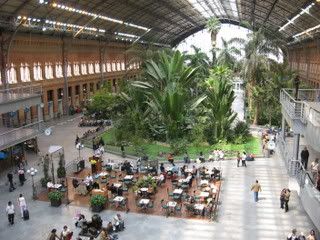
The next morning, we found ourselves in Barcelona! One thing we did not forsee is that they don't actually speak Spanish in Barcelona, they speak Catalan, which is a mixture of Spanish and French. So between Tim's Spanish and my French we did manage to find our way around, but it was more difficult than we expected.
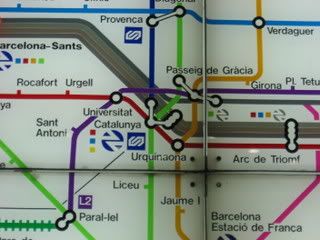
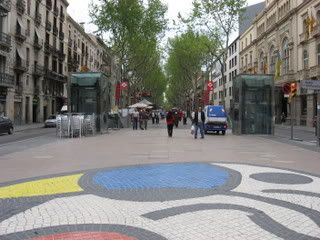
This is a very hip town square called Placa Reial. We were visiting on a Sunday so most things were closed, but usualy there is lots of music, food, and fun here.
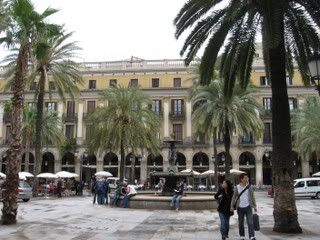
We then walked down to the port and went to an open-air market with lots of nautical goodies:
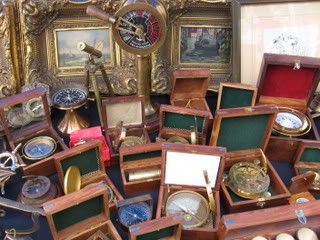
Barcelona is filled with interesting public art:
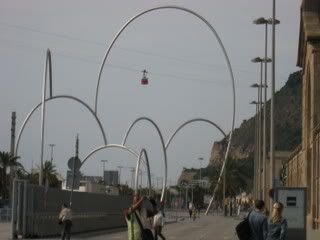
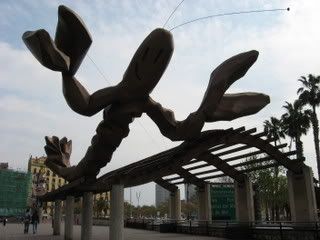
We then meandered through some old side streets on our way to find the famous buildings by the architect Gaudi.
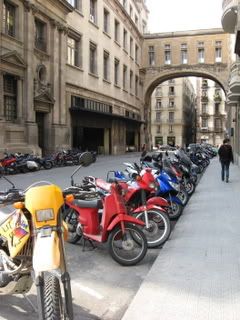
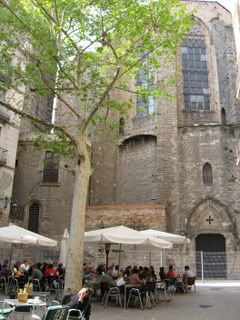
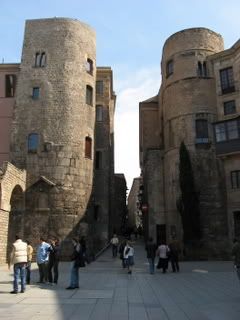
Medival ruins:
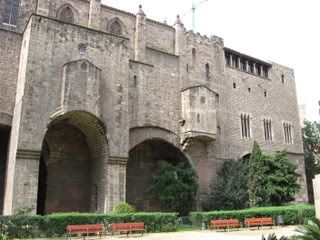
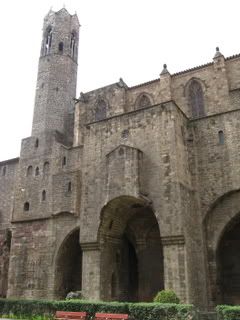
And finally some Gaudi Architecture. This is an opera house. Gaudi was a Spanish architect famous because there is almost no distinction between load-bearing elements and decorative elements, creating very organic buildings. Actually, he might just be better known for make weird looking stuff. The word "gawdy" is derived from his name and architectural style, if that says anything.
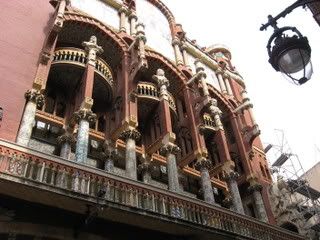
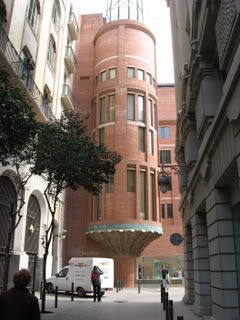
This is Gaudi's most famous building, the Sagrada Famiglia. Construction begin in 1881 and continues today. Gaudi passed away in the beginning of the 20th century, leaving behind his plans and models to complete the building. However, during the Spansh civil war, the plans for the building were lost in a bombing. They have had to recreate the models and study the structure to figuer out how to add onto it.
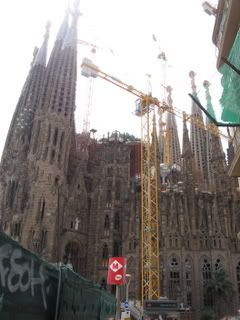
Gaudi only saw the completion of one facade of the church. This is his design:
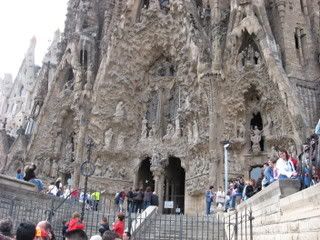
Later architects wre hired to complete the remaining facades, but they have made those parts of the building signifigantly different from Gaudi's style to differentiate between his original design and the newer plans:
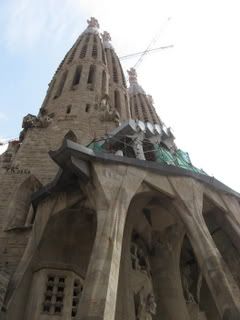
Inside:
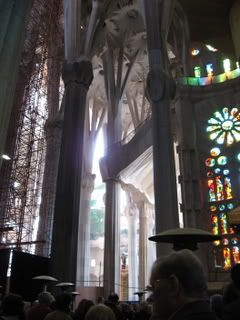
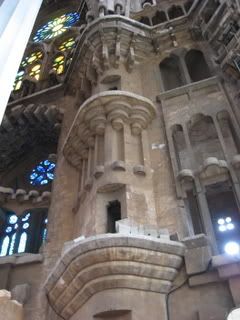
Scaffolding:
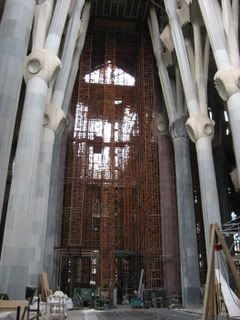
There is a museum under the church where you can see photos of the stages of construction:
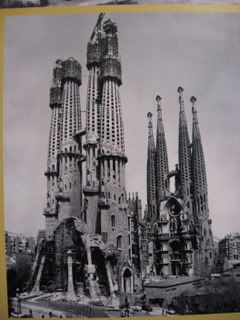
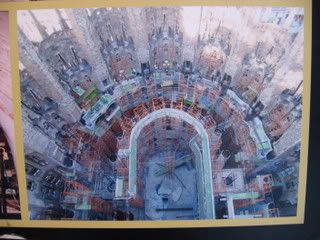
And of Gaudi's original idea for the finished product (which would end up being about twice as tall as the church is now.)
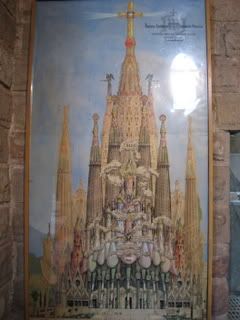
Then we had ourselves a nice dinner of tradition tapas and mojitos:
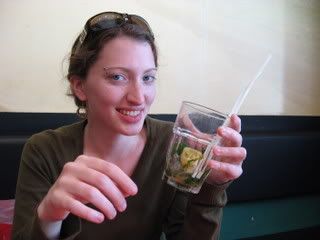
And headed home:
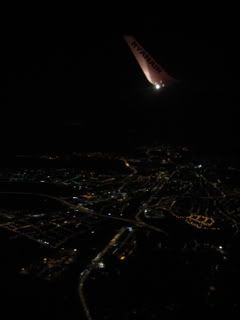

No comments:
Post a Comment